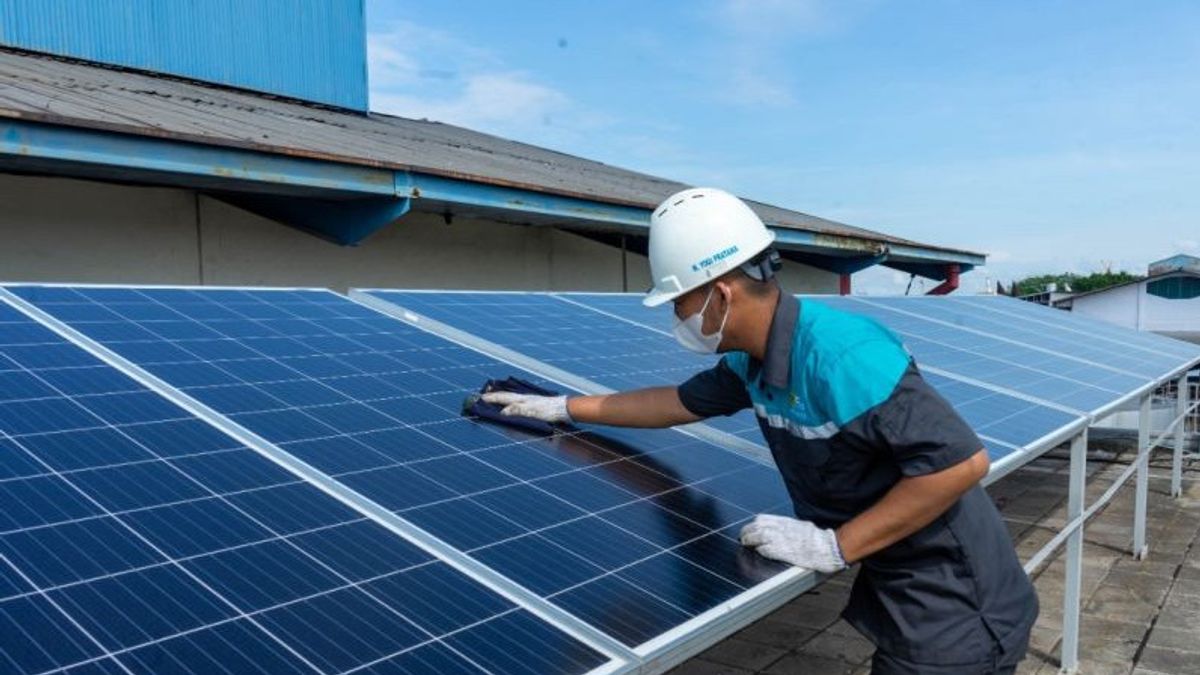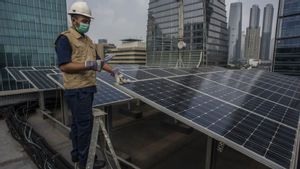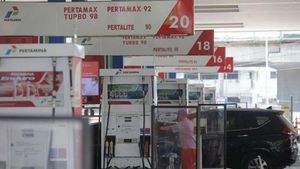JAKARTA - New and renewable energy in the energy mix is considered to be a solution to overcome the current energy crisis due to the geopolitical conflict between Russia and Ukraine which has made world crude oil prices rise.
Chairman of the Research Center for New and Renewable Energy at the Bandung Institute of Technology (ITB) Yuli Setyo Indartono said there was no guarantee that fuel prices would not rise again in the future. Therefore, Indonesia needs to increase the use of biodiesel, coal gasification, and biomass.
"Electric vehicles are also the right option. Norway, for example, has reached 94 percent and its subsidies are also targeting the right segments of society," he said in a statement quoted by Antara, Sunday, August 28.
Yuli reminded the government that incentives for the people in the midst of rising fuel prices are not only in the form of direct cash assistance and social assistance, but also widening subsidies to cover electric stoves and electric vehicles.
According to him, support for electric stoves and electric vehicles through subsidies is quite beneficial for the people. This is in line with Indonesia's program to reduce greenhouse gas emissions.
SEE ALSO:
Meanwhile, an observer of international politics and strategic issues, Imron Cotan, sees that it is time for Indonesia to prioritize and increase the use of clean energy in the energy mix so that it can replace fossil energy which is unsustainable due to high carbon emissions.
"This fossil energy is not sustainable and also not environmentally friendly because of the carbon emissions it produces," explained Imron.
He further said that fluctuations in world oil prices also made fossil energy increasingly unprofitable for Indonesia in the long run.
"The increase in world oil prices puts pressure on our state budget, so that it opens our eyes that renewable energy must play an important role in the future," said Imron.
In 2021, the net stun installed capacity in Indonesia will only be 11.15 gigawatts with an average growth rate of 4.3 percent per year.
It was stated that the increasingly competitive price of green energy devices, especially the price of solar panels, which continued to decline from time to time, made the use of clean stun more attractive, especially supported by new technologies ranging from pumped storage applied to hydroelectric power, hydrogen, and battery-based energy storage systems (BESS).
The Ministry of Energy and Mineral Resources revealed that the price of intermittent power plants has fallen by almost 80 percent in the last 10 years from US$5,000 per kWh to US$1,000 per kWh.
Moya Institute Executive Director Hery Sucipto asked the Indonesian government to rethink the current subsidized fuel price in light of high world oil prices.
He considers it reasonable if the subsidized fuel price is reviewed, because the increase in world oil prices has the potential to drain state finances if the government does not make adjustments to the subsidized fuel price.
"Many parties think that this fuel subsidy is leaking or not on target, so it is necessary to formulate the right subsidy policy so that it is right on target," said Hery.
"Don't let the subsidy be enjoyed by people from the upper middle class who are not actually entitled to receive the subsidy," he added.
The English, Chinese, Japanese, Arabic, and French versions are automatically generated by the AI. So there may still be inaccuracies in translating, please always see Indonesian as our main language. (system supported by DigitalSiber.id)














